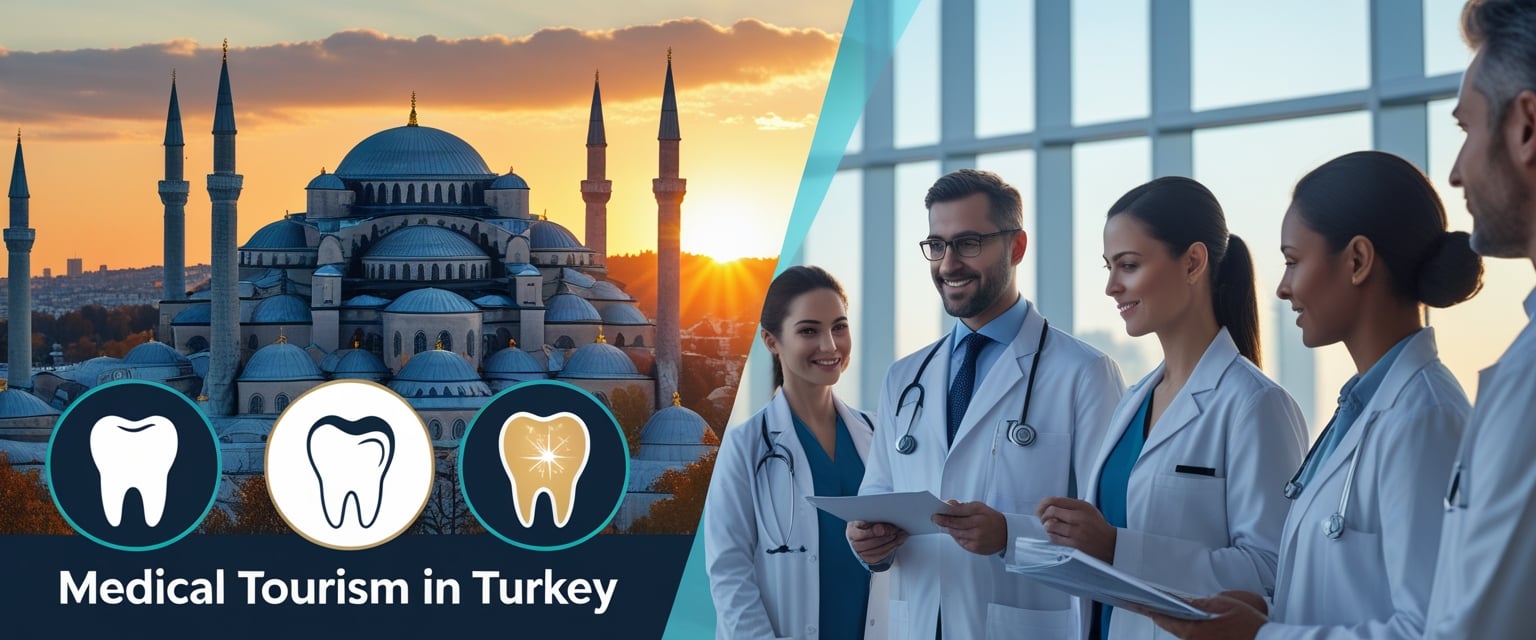Why Is Turkey Known for Medical Tourism? Find out how affordable treatments and international standards make Turkey a top health hub. Turkey has become one of the most popular destinations for people seeking medical care abroad. It is known for offering high-quality treatments such as dental care, cosmetic procedures, fertility treatments, eye surgeries, hair transplants, wellness therapies, and even general healthcare at costs often far lower than in Europe or the United States. This mix of affordability, skilled specialists, and modern facilities has made the country a trusted choice for medical tourism.
Many choose Turkey not only for the savings but also for the expertise of its doctors and the advanced technology used in its hospitals and clinics. From cosmetic surgery in Istanbul to dental implants in Antalya, patients have access to a wide range of options supported by international standards of care.

At the same time, medical travelers often enjoy the added benefit of exploring Turkey’s cultural and historical attractions. This unique combination of healthcare and tourism creates an experience that goes beyond treatment, making Turkey stand out as a global hub for medical tourism.
Table of Contents
Why Is Turkey Known for Medical Tourism?
Why Is Turkey Known for Medical Tourism? This question has become increasingly popular as millions of international patients travel each year for affordable, high-quality treatments. From advanced dental care to cosmetic surgery and fertility solutions, Turkey has positioned itself as a global hub where expertise meets affordability. The answer to “Why Is Turkey Known for Medical Tourism?” lies in its internationally accredited hospitals, skilled doctors, and modern facilities that rival those in Europe and the U.S. Beyond treatment, patients also enjoy Turkey’s cultural richness, making their journey both healing and memorable. If you’ve ever wondered why Turkey is a top choice for health travel, exploring “Why Is Turkey Known for Medical Tourism?” will reveal the country’s unique blend of care, cost-effectiveness, and hospitality.
Why Turkey Is a Leading Destination for Medical Tourism
Turkey attracts patients worldwide with its combination of internationally accredited hospitals, experienced doctors, affordable care, and strong government investment in health tourism. Its location between Europe, Asia, and the Middle East also makes travel simple for many international visitors.
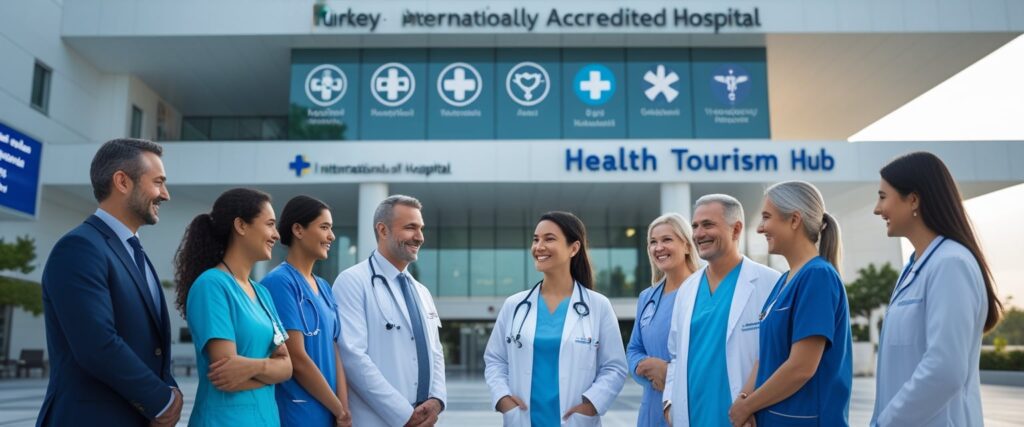
Global Reputation and Growth
Turkey has developed a strong reputation in medical tourism by offering high-quality healthcare at lower costs compared to Western Europe and North America. Many hospitals are accredited by the Joint Commission International (JCI), which reassures patients of safety and professional standards.
Specialties such as cosmetic surgery, dental care, fertility treatments, and eye surgeries are performed by surgeons often trained in the United States or Europe. Patients also travel for hair transplants, where Turkey is considered a global leader.

The country’s medical tourism sector continues to expand. According to industry reports, millions of international patients visit each year for procedures ranging from routine checkups to advanced surgeries. This steady growth has helped Turkey become one of the most recognized hubs for health tourism.
For example, medical tourism in Turkey often combines affordable pricing with comprehensive packages that include accommodation, transfers, and post-treatment care. This approach simplifies the process for patients and strengthens trust in the system.
Strategic Location and Accessibility
Turkey’s geographic position makes it highly accessible. Located at the crossroads of Europe, Asia, and the Middle East, it is within a short flight from major cities such as London, Berlin, Dubai, and Moscow. Istanbul Airport, one of the largest in the world, supports this connectivity with direct flights from hundreds of destinations.
Visa policies also encourage health tourism. Many patients can enter with electronic visas or visa-free agreements, reducing travel barriers. This ease of access is especially important for those seeking quick treatments like dental implants or laser eye surgery.

In addition, patients often combine treatment with tourism. Cities like Istanbul, Antalya, and Cappadocia allow visitors to recover while exploring cultural sites, beaches, or natural landscapes. This blend of healthcare and leisure adds value to the overall experience of health tourism in Turkey.
Government Support and Regulation
The Turkish government has played a central role in promoting medical tourism. Investments in modern hospitals, advanced medical technology, and training programs have raised the country’s healthcare standards. Public-private partnerships also ensure that both state and private hospitals can handle international demand.
Regulations are in place to protect patients and maintain quality. Accreditation requirements, transparent pricing policies, and international certifications help ensure safety and consistency. This framework makes Turkey attractive for those considering complex procedures such as fertility treatments or orthopedic surgeries.
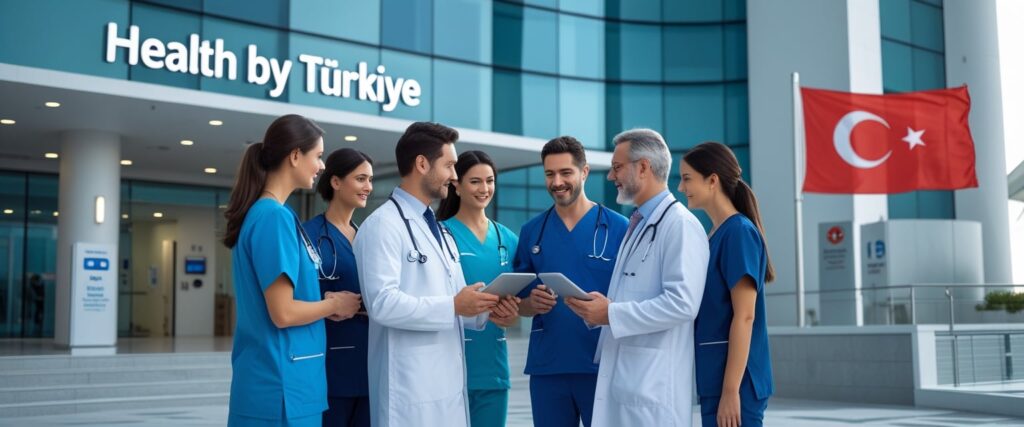
Government-backed initiatives like Health by Türkiye promote the country abroad, offering information and assistance to foreign patients. These efforts highlight Turkey’s commitment to becoming a trusted leader in health tourism.
By combining regulation, investment, and international promotion, Turkey has built a structured environment that supports both patients and healthcare providers. This long-term approach continues to strengthen its position in the global medical tourism market.
World-Class Medical Facilities and Technology
Turkey has invested heavily in healthcare infrastructure, creating hospitals that match international standards and equipping them with advanced medical technology. Patients benefit from modern facilities, precise diagnostic tools, and innovative treatment methods that support a wide range of specialties from cosmetic surgery to cancer care.

Modern Hospitals and International Accreditation
Hospitals in Turkey are designed to meet international benchmarks for safety and quality. Many leading institutions hold Joint Commission International (JCI) accreditation, which signals compliance with strict global healthcare standards.
Facilities like Acıbadem Healthcare Group and Memorial Hospitals operate large, multi-specialty centers that provide treatment in cardiology, oncology, orthopedics, and more. These hospitals often collaborate with international partners, which helps maintain consistent clinical protocols and ensures patients receive world-class medical care.
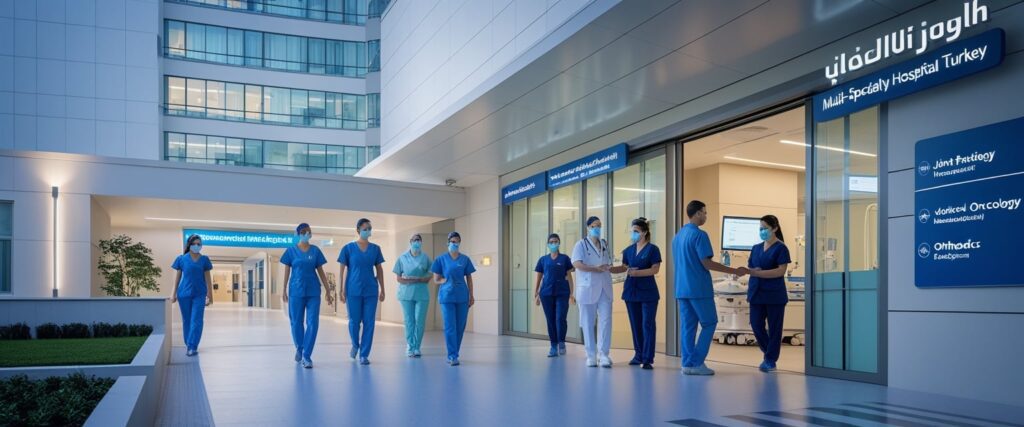
Most hospitals are located in major cities such as Istanbul, Ankara, and Izmir. They feature private patient rooms, multilingual staff, and dedicated international patient units. This setup makes treatment in Turkey accessible and comfortable for those traveling from abroad.
Advanced Medical Equipment and Diagnostics
Turkish hospitals invest in advanced imaging and diagnostic systems. Patients have access to MRI, CT scans, PET scans, and digital X-rays, which allow doctors to detect conditions early and plan treatments with accuracy.
These facilities also use robotic surgery systems, endoscopic tools, and minimally invasive technologies. Such equipment reduces recovery times and lowers the risk of complications.

Diagnostic laboratories in Turkey are equipped to handle genetic testing, advanced blood analysis, and molecular diagnostics. This supports fields like fertility treatment, cancer care, and cardiovascular medicine. The combination of skilled specialists and cutting-edge equipment ensures patients receive precise evaluations before undergoing procedures.
Innovative Treatment Methods
Treatment in Turkey often involves the use of new medical techniques that are on par with those in Europe and the United States. For example, hospitals provide robot-assisted surgeries, targeted cancer therapies, and regenerative medicine approaches.
In fertility care, clinics use advanced IVF protocols and embryo monitoring systems to improve success rates. Cosmetic and reconstructive surgeons employ 3D imaging to plan procedures such as rhinoplasty or breast surgery with greater precision.
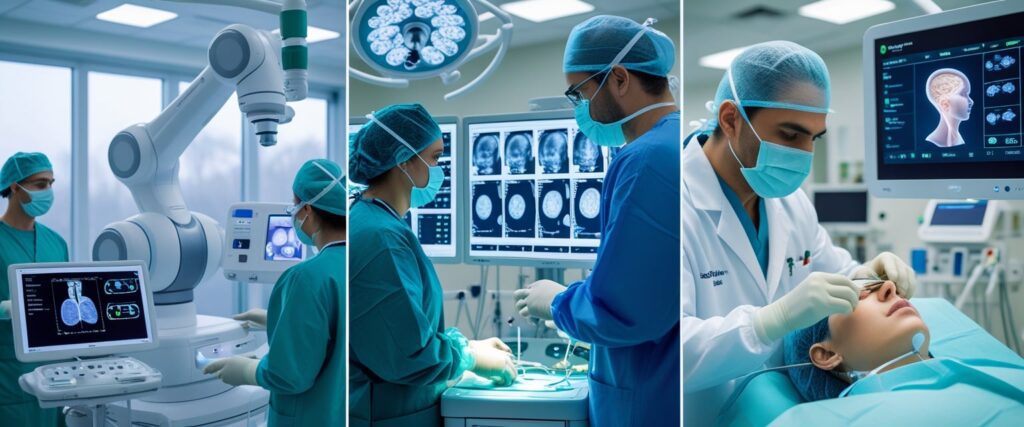
Hair transplant centers in Turkey are known for using modern methods like FUE (Follicular Unit Extraction), which provides natural results and faster healing. In cardiology, doctors apply minimally invasive valve repair and stenting procedures that shorten hospital stays.
By combining skilled professionals with innovative methods, Turkey delivers treatments that balance effectiveness, safety, and patient comfort.
Affordability and High Success Rates
Turkey attracts patients by combining lower treatment costs with strong clinical outcomes. Many procedures, from cosmetic surgery to dental care, are priced well below European and U.S. averages, while success rates remain competitive with global standards. Patients often find that the balance of affordability and medical quality makes Turkey a practical choice.
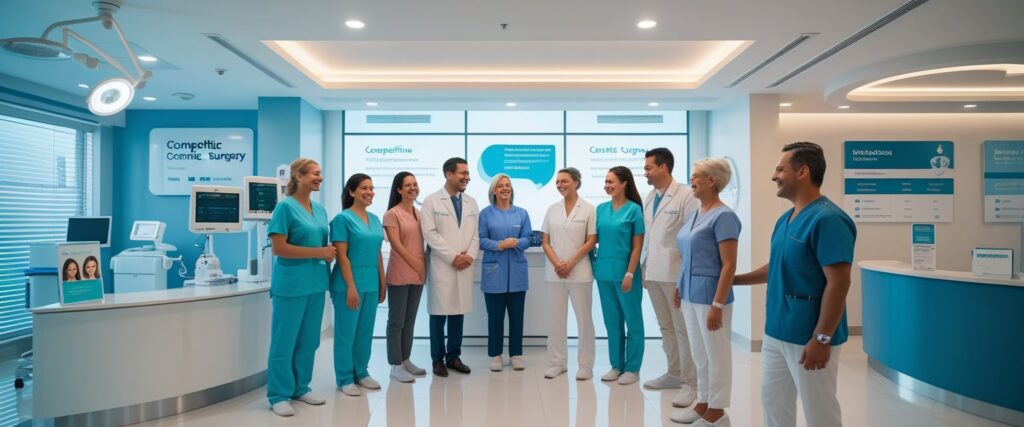
Cost Comparison with Other Countries
Medical procedures in Turkey often cost 35–70% less than in the UK, EU, or the U.S. For example, a hair transplant that may cost £7,000 in the UK can be performed in Turkey for around £2,000–£3,000. Similar savings apply to dental implants, cosmetic surgery, and bariatric procedures.
The difference comes from lower living expenses, favorable exchange rates, and government support for the health tourism sector. Clinics still use modern equipment and internationally approved techniques, which helps maintain care standards while keeping costs down.

Patients also benefit from package deals that include accommodation, airport transfers, and translation services. These bundled services reduce hidden costs, making the overall experience more affordable and predictable compared to treatment abroad.
Success Stories and Outcomes
Turkey has built its reputation on consistent high success rates across several specialties. Hair transplantation, for instance, is one of the most sought-after treatments, with thousands of international patients reporting natural-looking results and strong graft survival rates. Clinics emphasize follow-up care, which supports long-term outcomes.
Cosmetic procedures such as rhinoplasty, breast augmentation, and liposuction are also popular. Many patients choose Turkey because surgeons often train or collaborate with European institutions, ensuring techniques align with international standards.

Dental care is another area where outcomes are well-regarded. Patients frequently travel for implants, veneers, and full-mouth restorations, noting both the quality of materials and the durability of results. Positive reviews and repeat visits highlight the confidence many patients have in Turkish healthcare.
Insurance and Financial Considerations
While treatment costs are lower, patients are advised to review insurance coverage before traveling. Standard travel insurance often excludes elective procedures, so specialized medical tourism policies are recommended. These policies can cover complications, extended hospital stays, or follow-up care.
Some clinics also offer financing options or payment plans, which make procedures more accessible. Patients should confirm what is included in quoted prices, such as medications, aftercare, or revision surgery, to avoid unexpected expenses.

Evaluating the clinic’s accreditation and the surgeon’s qualifications is equally important. Many hospitals in Turkey hold international certifications, giving patients additional reassurance about both safety and financial protection.
Comprehensive Patient Experience and Support
Patients traveling to Turkey for medical care often receive structured support that extends beyond the procedure itself. Clinics and hospitals focus on organized planning, clear communication, and practical services that make treatment abroad more manageable.
Initial Consultation and Personalized Care
The process usually begins with an initial consultation, often conducted online before the patient travels. Doctors review medical records, diagnostic reports, and personal health goals to create a tailored treatment plan. This step helps patients understand expected outcomes, costs, and timelines.
Many facilities assign a dedicated patient coordinator. This person manages scheduling, provides instructions, and ensures all details are addressed. Such coordination reduces stress and helps patients feel prepared.

Follow-up care is also emphasized. Clinics often arrange post-treatment check-ins, either in person or through telemedicine, to monitor recovery progress. This level of personalized care builds trust and supports better results.
Multilingual Services and Cultural Sensitivity
Hospitals and clinics in Turkey often provide multilingual services to meet the needs of international patients. English, Arabic, Russian, German, and French are among the most common languages offered. This ensures that patients can communicate clearly with doctors, nurses, and administrative staff.
Cultural sensitivity is another key aspect of patient care. Facilities may offer prayer rooms, dietary options that respect religious practices, and staff trained in cross-cultural communication. These small but important adjustments help patients feel comfortable in a foreign setting.

Many centers also employ cultural liaisons who act as a bridge between the patient and medical team. Their role is to explain procedures, answer questions, and provide reassurance in the patient’s preferred language.
Airport Transfers and Accommodation Packages
To simplify travel, many hospitals arrange airport transfers directly to the clinic or hotel. Drivers are often scheduled to meet patients upon arrival, reducing the stress of navigating an unfamiliar city.
Accommodation packages are commonly included in treatment plans. These may cover hotel stays near the hospital, transportation to and from appointments, and sometimes even meals. Patients benefit from bundled pricing, which makes budgeting easier.

Some facilities partner with local hotels to provide medical-friendly rooms equipped with extra support features. This integration of travel and healthcare services reflects Turkey’s focus on creating a seamless patient experience from arrival to departure.
Cosmetic and Plastic Surgery Excellence
Turkey has become a leading destination for cosmetic surgery because of its skilled surgeons, modern clinics, and affordable costs. Patients often travel for procedures that improve facial features, reshape the body, or restore a youthful appearance.

Rhinoplasty and Facial Procedures
Rhinoplasty is one of the most requested surgeries in Turkey. Surgeons perform both cosmetic and functional nose reshaping, helping patients refine appearance while also correcting breathing issues. Clinics use advanced imaging technology so patients can preview potential results before surgery.
Facial procedures also include eyelid surgery, chin implants, and ear reshaping. These treatments address both aesthetics and balance of facial features. Many patients choose Turkey because the cost is significantly lower than in the UK or US, while maintaining high clinical standards.
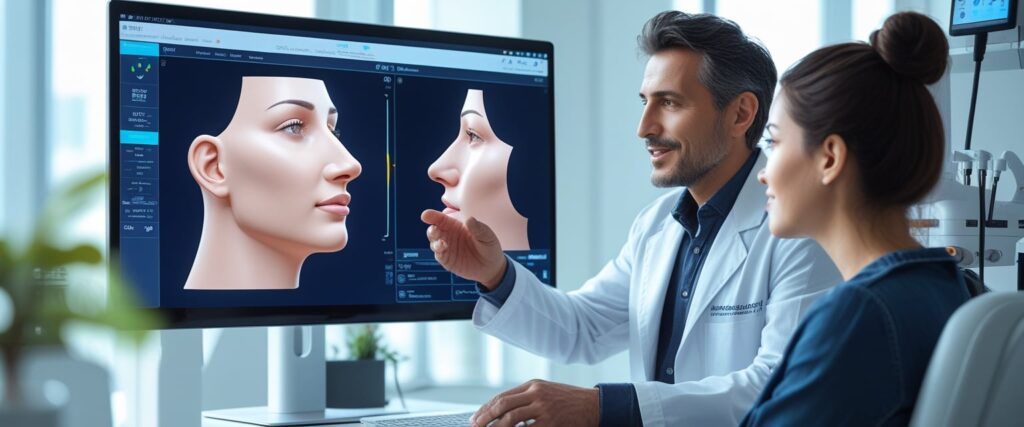
Key benefits of rhinoplasty and facial surgery in Turkey:
- Lower average cost compared to Western Europe
- Surgeons with international training and certifications
- Access to modern surgical facilities and aftercare programs
Breast Augmentation and Body Contouring
Breast augmentation is another major reason patients travel to Turkey. Clinics offer silicone or saline implants, as well as breast lifts for women seeking a more natural shape. Surgeons often combine augmentation with contouring techniques for balanced results.
Body contouring procedures such as liposuction and tummy tucks are also common. These surgeries help patients achieve a slimmer figure after weight loss or pregnancy. According to Turkey medical tourism statistics, procedures like liposuction and abdominoplasty are among the most frequently performed in the country.

Patients often choose package deals that include surgery, accommodation, and transfers. This makes the process more convenient and cost-effective compared to undergoing treatment at home.
Facelifts and Reconstructive Surgery
Facelifts are performed to reduce sagging skin and restore a smoother facial profile. Turkish surgeons use techniques that minimize scarring and shorten recovery times. Many clinics also offer mini facelifts for patients seeking less invasive options.
Reconstructive plastic surgery is another important field. Surgeons treat patients recovering from accidents, burns, or previous unsuccessful procedures. Clinics in Istanbul and other major cities specialize in combining aesthetic improvements with functional restoration.
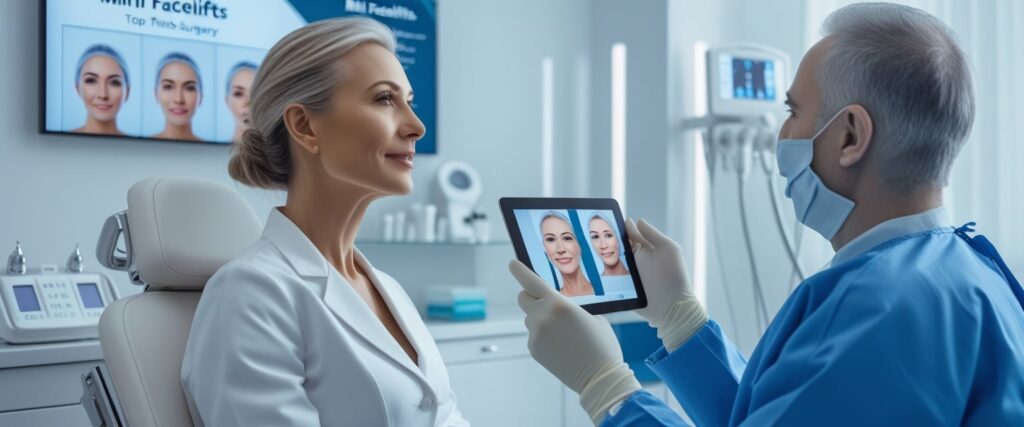
Patients benefit from comprehensive care, including initial consultation, surgery, and structured aftercare. This approach has helped Turkey become recognized as a hub for plastic surgery procedures, attracting thousands of international patients each year.
Hair Transplants and Advanced Techniques
Turkey has become a leading destination for hair transplantation due to its skilled surgeons, modern clinics, and use of advanced methods that reduce scarring and improve natural results. Patients often choose the country for both the technical precision of the procedures and the structured recovery support offered by clinics.
FUE and DHI Methods
Two of the most widely used techniques in Turkey are Follicular Unit Extraction (FUE) and Direct Hair Implantation (DHI). Both aim to restore natural-looking hair growth while minimizing visible scars.
FUE involves removing individual follicles from the donor area, usually the back of the scalp, and implanting them into thinning regions. This method is minimally invasive and leaves tiny, dot-like scars that are hard to detect.
DHI builds on the principles of FUE but uses a specialized implanter pen to place follicles directly into the scalp. This allows for more control over hair angle, depth, and density, which can create a more natural pattern.
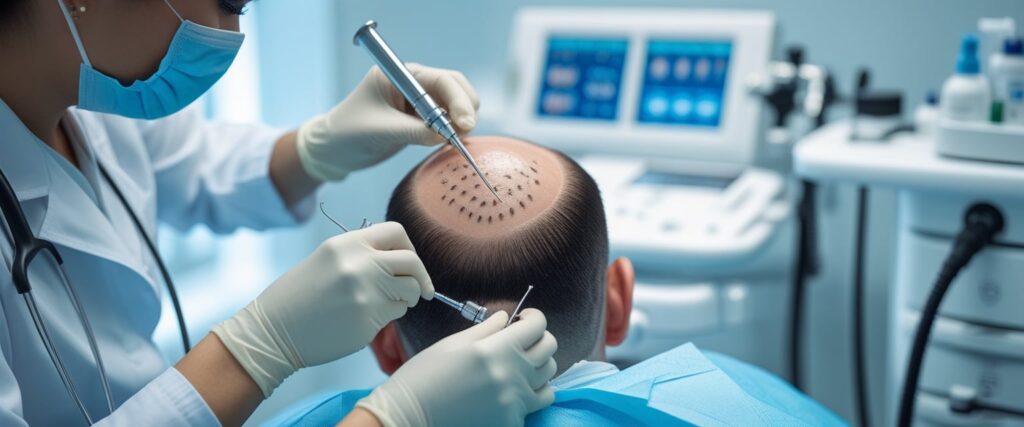
Many clinics also use robotic or automated systems to increase accuracy during extraction and placement. These technologies improve efficiency and reduce the risk of human error. Patients often find that both FUE and DHI provide reliable results when performed by experienced surgeons.
Patient Outcomes and Recovery
Hair transplants in Turkey are known for high success rates, with most patients experiencing visible growth within 6 to 12 months. The transplanted follicles usually shed in the first few weeks, followed by new growth that blends with existing hair.
Recovery is generally quick. Patients can return to light activities within a few days, though full healing of the donor and recipient areas may take several weeks. Clinics provide detailed aftercare instructions, including how to wash the scalp and avoid infection.

Many facilities also include follow-up appointments and check-ins to monitor progress. This structured approach to recovery helps ensure long-term satisfaction and reduces complications. Clinics emphasize that results depend on both surgical technique and patient adherence to aftercare guidelines.
For many international visitors, the combination of advanced procedures and strong aftercare makes Turkey a top destination for hair transplants.
Dental Tourism and High-Quality Dental Care
Turkey attracts thousands of international patients each year for dental treatments due to its combination of affordable pricing, modern clinics, and internationally trained dentists. Patients often choose the country for procedures that are either too costly or have long wait times in their home countries.
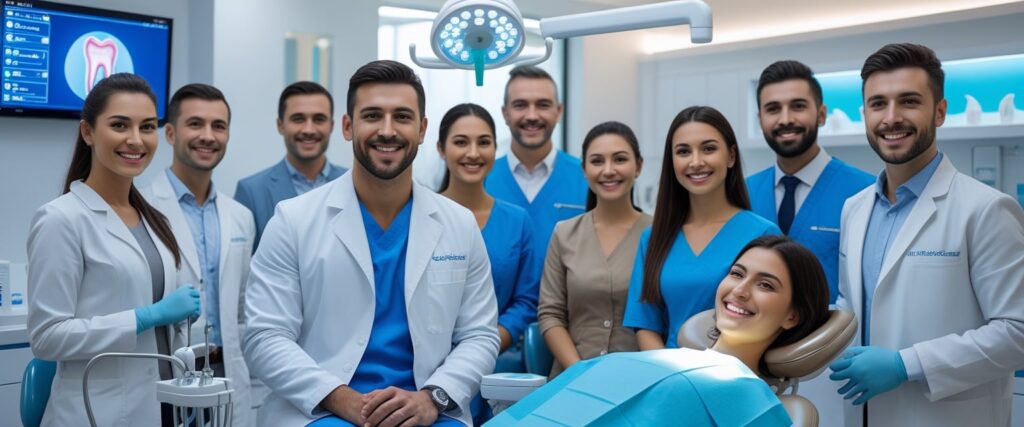
Dental Implants and Restorations
Dental implants are one of the most common reasons people travel for dental tourism in Turkey. Clinics often use titanium or zirconia implants that integrate with the jawbone to replace missing teeth. Many patients also combine implants with crowns or bridges for full mouth restorations.
The cost savings are significant. Patients can save up to 70% compared to the US or Western Europe while still receiving care in facilities that follow international standards. Many clinics hold accreditations and use digital imaging, 3D scanning, and guided surgery techniques to improve precision and outcomes.
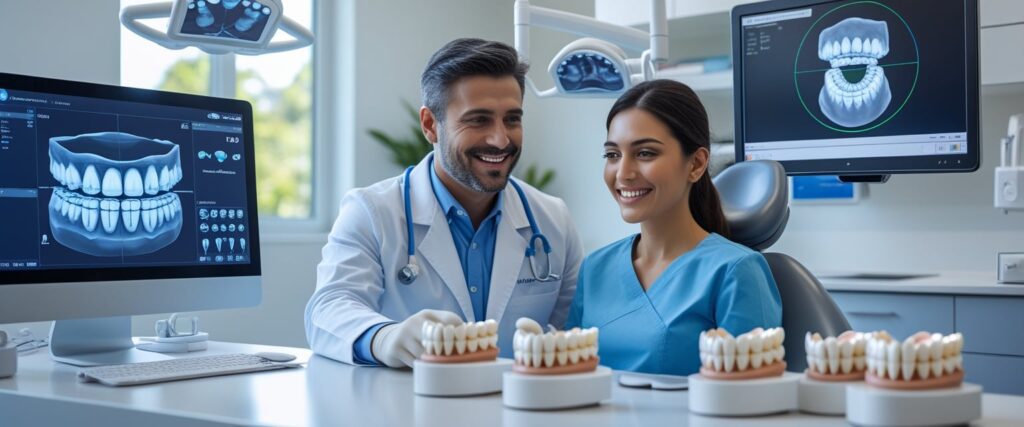
Aftercare is also emphasized. Clinics usually provide follow-up appointments, detailed instructions, and even remote consultations to ensure proper healing. This approach helps patients feel supported even after returning home. More details on the affordability and quality of implants in Turkey can be found in dental tourism guides.
Veneers and Aesthetic Dentistry
Veneers are another highly requested dental treatment in Turkey. These thin shells, typically made of porcelain or composite, are bonded to the front of teeth to improve shape, size, and color. Patients often seek veneers for cosmetic reasons, such as correcting discoloration, chips, or gaps.
Clinics in cities like Istanbul and Antalya specialize in smile design, using digital tools to preview results before treatment begins. This allows patients to see how veneers will look before committing.
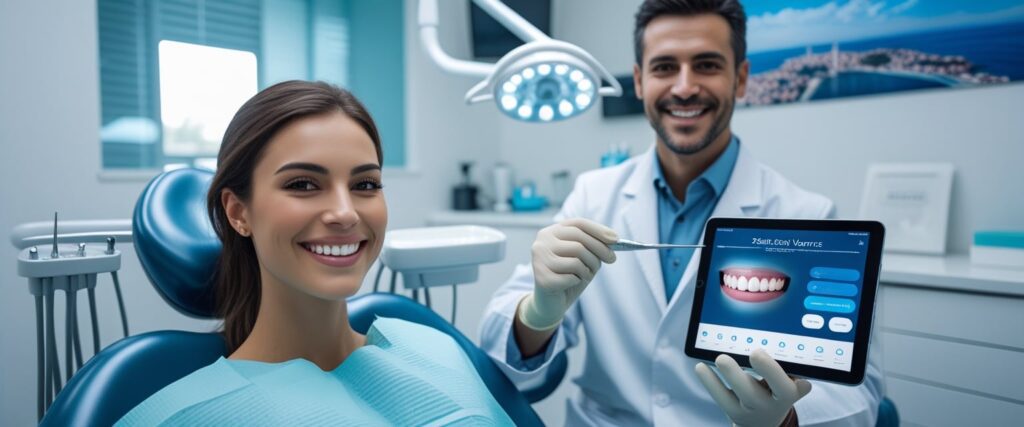
Pricing is a major factor. Veneers in Turkey are often a fraction of the cost compared to the UK or US, making them accessible to more people. Patients also report high satisfaction due to the combination of affordability and skilled craftsmanship, as highlighted in dental tourism reviews.
Many clinics also offer package deals that include airport transfers, hotel stays, and translation services, making the process smoother for international visitors. This level of organization has helped Turkey become a popular destination for aesthetic dentistry.
Fertility Treatments, Eye Surgeries, and Wellness Therapies
Turkey attracts patients who want advanced fertility care, precise eye surgeries, and structured wellness programs. Clinics combine modern technology with experienced specialists, making these treatments accessible and reliable for international visitors.
Fertility Clinics and Success Rates
Fertility centers in Turkey provide a wide range of assisted reproductive technologies such as IVF, egg donation, and sperm donation. Many clinics also offer genetic testing and embryo freezing, which help improve success rates.
Clinics like Bahçeci IVF Centers and Jinemed Hospital are well known for patient-focused care. These facilities use international standards and advanced lab equipment to support couples through treatment.

Patients often choose Turkey because of its balance between affordability and quality. Reported outcomes are comparable to leading clinics in Europe, making it a trusted option for couples seeking fertility treatments abroad.
Laser Eye Surgeries and Vision Correction
Eye hospitals in Turkey specialize in laser surgeries such as LASIK and PRK to correct nearsightedness, farsightedness, and astigmatism. Clinics use modern diagnostic tools to assess eye health and determine the most suitable procedure.
Institutions like Dünyagöz Hospitals Group are recognized for offering tailored treatment plans. These centers often use femtosecond laser technology, which allows for more precise corneal reshaping and faster recovery times.
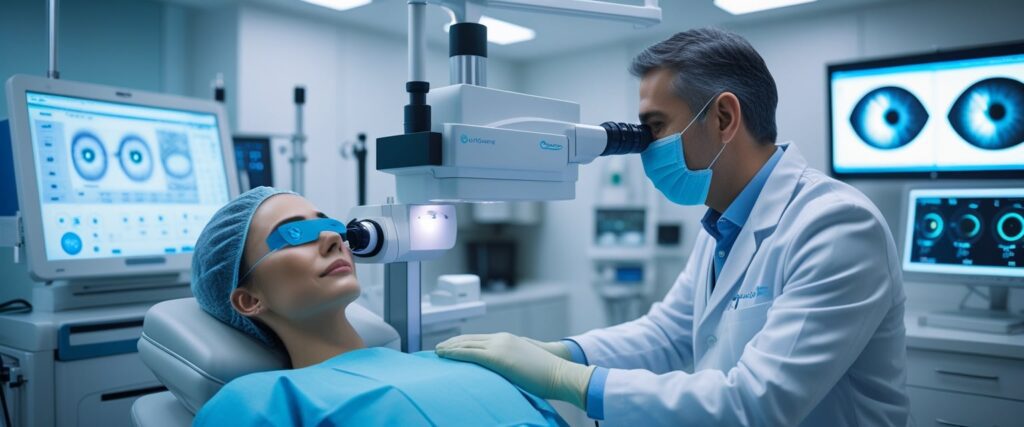
Patients benefit from shorter waiting lists and competitive prices compared to Western countries. Most clinics also provide multilingual support, making it easier for international patients to navigate the process.
Wellness Therapies and Recovery Options
Wellness therapies in Turkey focus on recovery and long-term health improvement. Many patients combine medical treatments with spa therapies, hydrotherapy, and nutrition programs to support healing.
Resorts and specialized centers often integrate traditional Turkish hammams with modern physiotherapy. This creates a balanced approach to relaxation and rehabilitation.

Wellness programs also include post-surgery recovery packages that cover physiotherapy, stress management, and dietary guidance. According to medical tourism guides, these options appeal to patients who want both medical care and restorative experiences during their stay.
Exploring Turkey: Combining Healthcare with Tourism
Patients often choose Turkey not only for its medical care but also for the chance to recover in comfortable surroundings and enjoy cultural experiences. The country’s mix of modern hospitals, historic cities, and coastal resorts makes it appealing for both treatment and leisure.
Recovery in Istanbul and Other Destinations
Many patients begin their recovery in Istanbul, where international hospitals sit close to hotels and serviced apartments. This allows patients to receive follow-up care while staying in a convenient location. The city offers private recovery suites and wellness-focused accommodations designed for medical visitors.
Outside Istanbul, coastal regions like Antalya and Bodrum provide quiet environments for rest. These areas are known for wellness resorts that offer spa treatments, thermal baths, and nutrition programs. Patients recovering from procedures such as dental implants or cosmetic surgery often prefer these calmer settings.

For those seeking shorter recovery times, Turkey also has specialized clinics near airports, making travel easier. Patients can combine post-treatment rest with light sightseeing, as many facilities recommend gentle activities such as walking tours or boat rides once recovery allows.
| Location | Recovery Benefit | Popular for Patients After… |
|---|---|---|
| Istanbul | Close to hospitals, urban amenities | Eye surgeries, fertility treatments |
| Antalya | Resorts, spa and wellness programs | Cosmetic procedures, dental care |
| Bodrum | Quiet coastal recovery, thermal spas | Hair transplants, bariatric surgery |
Cultural and Recreational Opportunities
Turkey’s cultural and recreational options attract patients who want more than medical care. After treatment, many explore Istanbul’s landmarks such as the Hagia Sophia, Grand Bazaar, and Bosphorus cruises. These activities are usually light and suitable for those in recovery.
Medical tourists also visit Cappadocia for its cave hotels and hot air balloon rides, which are often scheduled after recovery periods. Coastal towns like Izmir and Fethiye offer beaches and historical ruins, giving patients a balance of rest and sightseeing.

Wellness-focused travelers may choose traditional hammams, yoga retreats, or guided nature walks. These activities complement medical recovery by supporting relaxation and mental well-being. Combining healthcare with travel allows patients to return home with both improved health and memorable experiences.
Conclusion
In conclusion, the answer to “Why Is Turkey Known for Medical Tourism?” goes far beyond affordability. It reflects a healthcare system built on advanced technology, government support, and internationally recognized expertise. Patients not only receive world-class treatments but also experience seamless care packages and recovery in a country rich with history and natural beauty. For those considering treatments abroad, understanding “Why Is Turkey Known for Medical Tourism?” highlights why this destination remains one of the world’s most trusted choices for medical travelers.
Frequently Asked Questions
Turkey attracts a large number of international patients due to affordable pricing, skilled doctors, and modern hospitals. Visitors often seek treatments such as dental work, cosmetic surgery, fertility care, and specialized procedures like eye surgery and hair transplants.
What are the factors that contribute to Turkey’s popularity in medical tourism?
Turkey combines advanced healthcare facilities with lower treatment costs compared to many Western countries. It also benefits from its location between Europe, Asia, and the Middle East, making it accessible to millions of travelers each year.
How do the costs of medical procedures in Turkey compare to other countries?
On average, procedures cost 35–50% less than in the European Union or the United States. For example, cosmetic and dental treatments are significantly cheaper while maintaining high standards of care, which makes Turkey a cost-effective option for international patients (Medical Tourism in Turkey Guide).
What types of medical procedures are most commonly sought by tourists in Turkey?
The most popular treatments include hair transplants, dental care, and cosmetic surgery such as rhinoplasty, breast augmentation, and liposuction. Many patients also travel for fertility treatments, bariatric surgery, orthopedic care, and eye surgeries like LASIK (Medical Tourism Turkey Overview).
How does Turkey ensure the quality and safety of medical treatments for international patients?
Many hospitals in Turkey hold international accreditations such as Joint Commission International (JCI). Clinics often use modern equipment and follow strict hygiene standards. Patients are encouraged to review facility credentials and choose providers with strong reputations (Comprehensive Guide to Medical Tourism in Turkey).
What are the qualifications and accreditations of healthcare providers in Turkey for serving medical tourists?
Doctors in Turkey often train both locally and abroad, gaining experience in Europe or the United States. Many hospitals are accredited by international organizations, ensuring they meet global standards. This combination helps build trust among patients seeking specialized care (Frequently Asked Questions About Medical Tourism in Turkey).
What are the visa and accommodation arrangements for medical tourists visiting Turkey?
Most visitors can obtain an e-Visa online, which simplifies entry for medical purposes. Clinics and hospitals frequently offer packages that include airport transfers, hotel stays, and translation services. This support helps patients focus on treatment and recovery without worrying about logistics (Medical Tourism in Turkey – Clinics and Packages).
